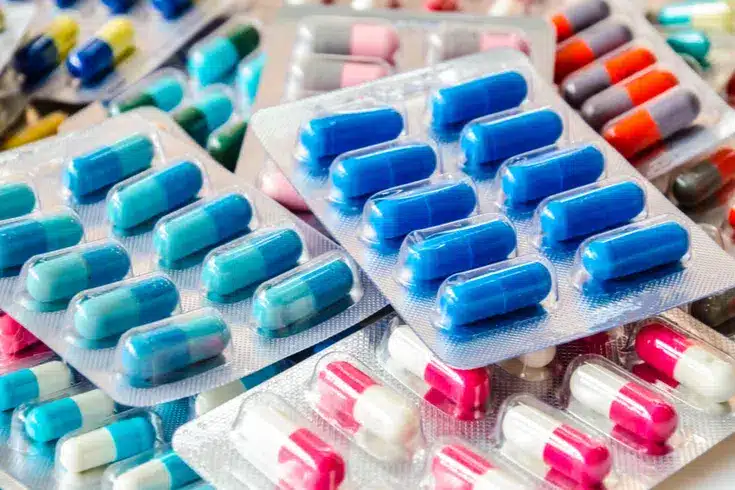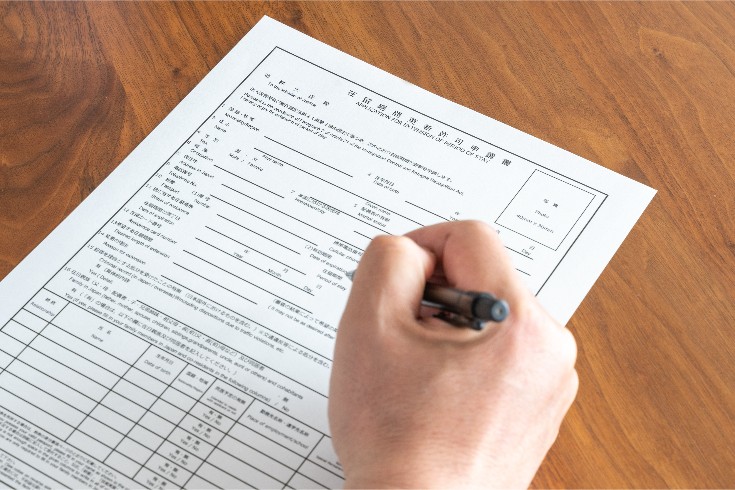Contents of the Pharmaceutical Affairs Law Amendment in Reiwa 1st Year (2019) ~The Future of Pharmacies and Pharmacists, and the System of Administrative Monetary Penalties~

The revised Pharmaceutical and Medical Device Act, which was promulgated on December 4th of Reiwa 1 (2019) and is scheduled to be implemented in stages, has undergone amendments in various fields, to the extent that it is referred to as the “Great Amendment Law of Reiwa”.
In this revision, broadly speaking, the focus is on three points: ① Improvements in the system from the development to post-marketing of pharmaceuticals and other products, ② Review of the status of pharmacists and pharmacies, and ③ Establishment of a legal compliance system to ensure trust. In particular, point ③ will require corporate measures due to the introduction of a new system.
In this article, we will explain point ② and the introduction of a surcharge system in point ③.
What is the Pharmaceuticals and Medical Devices Act (Formerly the Pharmaceutical Affairs Law)?

The Pharmaceuticals and Medical Devices Act is a law enacted to ensure the quality, efficacy, and safety of pharmaceuticals and medical devices, and to improve public health. Its official name is “Act on Securing Quality, Efficacy and Safety of Products Including Pharmaceuticals and Medical Devices”.
Previously known as the Pharmaceutical Affairs Law, it was revised in Heisei 26 (2014) with the main objectives of ① strengthening safety measures for pharmaceuticals and medical devices, ② constructing regulations considering the personalityistics of medical devices, and ③ constructing regulations considering the personalityistics of regenerative medicine products. At the same time, the name was changed to its current one.
Subsequently, a law to amend part of the Pharmaceuticals and Medical Devices Act was promulgated on December 4, Reiwa 1 (2019), and was enforced in principle on September 1, Reiwa 2 (2020). The provisions that are exceptions have been enforced in a staggered manner. The surcharge system, which will be introduced in the latter part of this article, was enforced on August 1, Reiwa 3 (2021).
Purpose of the Japanese Pharmaceutical and Medical Device Act
(Purpose)
This law aims to ensure the quality, efficacy, and safety of pharmaceuticals, quasi-drugs, cosmetics, medical devices, and regenerative medicine products (hereinafter referred to as “pharmaceuticals, etc.”) and to prevent the occurrence and spread of health and hygiene hazards caused by their use. In addition, it provides for measures to regulate designated drugs and to promote the research and development of pharmaceuticals, medical devices, and regenerative medicine products that are particularly necessary for medical purposes, with the aim of improving health and hygiene.
Article 1 of the Japanese Pharmaceutical and Medical Device Act[ja]
According to Article 1 of the Japanese Pharmaceutical and Medical Device Act, the purpose of the Act is to:
- Regulate to ensure the quality, efficacy, and safety of pharmaceuticals, etc.
- Regulate to prevent the occurrence and spread of health and hygiene hazards caused by the use of pharmaceuticals, etc.
- Take measures related to the regulation of designated drugs
- Take measures to promote the research and development of pharmaceuticals, etc.
Through these measures, the Act aims to improve health and hygiene.
While pharmaceuticals, etc. contribute to human health, if used with issues in efficacy or safety, they can harm health and potentially cause serious harm to life.
Therefore, the Japanese Pharmaceutical and Medical Device Act aims to prevent impacts on the human body and protect the health and safety of the public by establishing strict regulations, such as those against exaggerated advertising, which will be discussed later.
Regulated Products under the Japanese Pharmaceuticals and Medical Devices Act
The products regulated by the Japanese Pharmaceuticals and Medical Devices Act (薬機法) are classified into the following five categories:
- Pharmaceuticals: Prescription drugs, over-the-counter drugs, vaccines, etc.
- Quasi-drugs: Gargle medicines, insecticides, hair dyes, contact lens solutions, etc.
- Cosmetics: Soaps, body shampoos, hair care products, skin care products, etc.
- Medical devices: Pacemakers, artificial joints, thermometers, scalpels, etc.
- Regenerative medical products: Cell processed products (such as iPS cells), gene therapy products
So, how are so-called health foods, which can be seen in pharmacies, treated?
There is no definition of health foods under the Japanese Pharmaceuticals and Medical Devices Act. Foods and beverages are classified as either “food” or “pharmaceuticals” (Article 4, Paragraph 1 of the Japanese Food Sanitation Act), so health foods are classified as “food”.
However, displaying efficacy and effects similar to pharmaceuticals on non-pharmaceutical products is a violation of Article 68 of the Japanese Pharmaceuticals and Medical Devices Act, as will be mentioned later. Therefore, there is a system called the Foods with Health Claims system for displaying efficacy and effects on “food”.
As health foods fall under the category of “food”, they are not generally subject to regulation under the Japanese Pharmaceuticals and Medical Devices Act.
For more information on so-called health foods, please refer to this article.
Regulations on Advertising

The Japanese Pharmaceuticals and Medical Devices Act (薬機法) imposes strict regulations on the advertising of pharmaceuticals and other related products. These regulations can be broadly divided into three categories.
Prohibition of False and Exaggerated Advertising
Article 66 of the Japanese Pharmaceutical and Medical Device Act (PMD Act) prohibits false and exaggerated advertising of pharmaceuticals and other related products.
This is because if a pharmaceutical or related product contains false or exaggerated claims, it could potentially have unforeseen effects on the health of users who trust these claims.
(Exaggerated Advertising, etc.)
1 No person shall advertise, describe, or disseminate false or exaggerated articles regarding the name, manufacturing method, efficacy, effect, or performance of pharmaceuticals, quasi-drugs, cosmetics, medical devices, or regenerative medicine products, whether explicitly or implicitly.
2 Any article that could be misunderstood as being guaranteed by a doctor or other person regarding the efficacy, effect, or performance of pharmaceuticals, quasi-drugs, cosmetics, medical devices, or regenerative medicine products shall be deemed to fall under the preceding paragraph.
3 No person shall imply abortion or use obscene documents or drawings in relation to pharmaceuticals, quasi-drugs, cosmetics, medical devices, or regenerative medicine products.
Article 66 of the PMD Act[ja]
Not only is it prohibited to display effects and efficacy that are not contained in pharmaceuticals and other products, or to mimic the names of over-the-counter drugs, but it is also prohibited to use expressions that could lead to misunderstandings that there is a guarantee from professionals such as doctors, even if the efficacy and effects are correct. For example, even if it is a product approved as a pharmaceutical or quasi-drug, or a cosmetic, it is considered false and exaggerated advertising to advertise beyond the approved range of efficacy and effects, such as “removes spots and freckles”.
Restrictions on Advertising for Specific Disease Medications and Regenerative Medicine Products
Article 67 of the Japanese Pharmaceutical and Medical Device Act (PMD Act) stipulates that necessary measures for specific disease medications and other related products should be established by the Ministry of Health, Labour and Welfare.
(Restrictions on Advertising for Specific Disease Medications and Regenerative Medicine Products)
1 For medications and regenerative medicine products intended for use in treating cancer and other special diseases as defined by Cabinet Order, and which pose a particularly high risk if not used under the guidance of a physician or dentist, the Ministry of Health, Labour and Welfare may designate such medications and products, and restrict advertising methods targeting the general public, among other necessary measures to ensure their proper use.
2 The Minister of Health, Labour and Welfare must seek the opinion of the Pharmaceutical Affairs and Food Sanitation Council before requesting a Cabinet meeting regarding the establishment or abolition of a Cabinet Order defining special diseases. However, this does not apply to matters deemed minor by the Pharmaceutical Affairs and Food Sanitation Council.
Article 67 of the PMD Act[ja]
The term “special diseases” in this article refers to “cancer”, “sarcoma”, and “leukemia”. The use of medications and regenerative medicine products related to these diseases requires advanced expertise, hence the provision aims to restrict advertising targeting the general public who are not medical professionals.
Prohibition of Advertising for Unapproved Drugs and Other Products
Article 68 of the Japanese Pharmaceuticals and Medical Devices Act prohibits the advertising of drugs and other products that have not been approved.
(Prohibition of Advertising for Pre-Approval Drugs, Medical Devices, and Regenerative Medicine Products)
No person shall advertise the name, manufacturing method, efficacy, effect, or performance of a drug, medical device, or regenerative medicine product as stipulated in Article 14, Paragraph 1, Article 23-2-5, Paragraph 1, or Article 23-2-23, Paragraph 1, that has not yet received approval or certification under Article 14, Paragraph 1, Article 19-2, Paragraph 1, Article 23-2-5, Paragraph 1, Article 23-2-17, Paragraph 1, Article 23-25, Paragraph 1, or Article 23-37, Paragraph 1, or certification under Article 23-2-23, Paragraph 1.
Article 68 of the Japanese Pharmaceuticals and Medical Devices Act[ja]
The key point of this article is that it prohibits all advertising of drugs and other products that have not been approved (or certified), in order to prevent unforeseen public health risks, as these products have not been guaranteed for their efficacy or effects.
Even if a drug or other product that has not been approved or certified is later approved or certified with the same content, if it was advertised by its name, manufacturing method, efficacy, effect, or performance while unapproved, it would be in violation of this article, so caution is necessary.
Also, caution is required when selling “food” that is not subject to regulation under the Pharmaceuticals and Medical Devices Act.
This is because even if it is a “food” such as a so-called health food, if it is advertised as having effects such as “lowering blood pressure”, it may be considered a drug.
If it is considered a drug, advertising is prohibited unless it is approved or certified. Violating this and advertising can result in imprisonment for up to two years or a fine of up to 2 million yen.
If you want to know more about the points to note when advertising supplements, please see the following article in addition to this one.
Related article: Points to Note When Advertising Supplements[ja]
If you want to know more about the points to note in advertising expressions for cosmetics and health foods, please see the following article in addition to this one.
Related article: Points to Note in Advertising Expressions for Cosmetics and Health Foods[ja]
Reconsidering the Role of Pharmacists and Pharmacies

Pharmacists and pharmacies dispense medications based on prescriptions from medical institutions. The purpose of this division of labor between medical treatment and dispensing is to ensure the safety and effectiveness of drug therapy by allowing pharmacists and pharmacies to understand the patient’s condition and the medications they are taking.
However, in reality, patients often have their prescriptions filled at pharmacies near their medical institutions, making it difficult for pharmacists and pharmacies to continuously understand the patient’s situation and the medications they are taking.
Therefore, in the first year of Reiwa (2019), the Japanese Pharmaceutical Affairs Law was revised to establish legal provisions concerning pharmacists and pharmacies, with the aim of enabling patients to use medications with peace of mind in their familiar local areas.
Clarification of the Role of Pharmacists and Pharmacies
Under the previous Japanese Pharmaceutical Affairs Law, pharmacies were defined as “places where pharmacists perform dispensing operations for the purpose of selling or providing.” However, with the revision in Reiwa 1 (2019), they were redefined as “places where pharmacists perform dispensing operations for the purpose of selling or providing, as well as providing information necessary for the proper use of drugs and medical products, and performing duties based on pharmaceutical knowledge” (Article 2, Paragraph 12 of the Japanese Pharmaceutical Affairs Law).
This amendment explicitly states that pharmacies and pharmacists are professionals who provide information and guidance on medications to patients.
Consequently, pharmacies and pharmacists are now obligated not only to provide guidance at the time of dispensing, but also to understand the ongoing medication situation of patients. They are also required to make efforts to provide feedback to prescribing physicians about the patient’s medication situation.
Certified Pharmacy System
With the revision in Reiwa 1 (2019), the terms “Community Collaboration Pharmacy” and “Specialized Medical Institution Collaboration Pharmacy” were newly defined. These are intended to make it easier for patients to choose a pharmacy that suits their needs by explicitly stating that the pharmacy has certain functions. It is believed that this will make it easier to understand the patient’s situation, which has been expected for some time.
What is a Community Collaboration Pharmacy?
A Community Collaboration Pharmacy (Japanese Pharmaceutical Affairs Law Article 6-2) is a pharmacy that can continuously collaborate by centrally managing information such as patients’ medication status in collaboration with other medical alliance facilities such as clinics and nursing care facilities.
Requirements for a Community Collaboration Pharmacy include a dispensing system that includes information sharing and night and holiday responses, and compliance with the standards set by the Ministry of Health, Labour and Welfare, such as response to home medical care.
What is a Specialized Medical Institution Collaboration Pharmacy?
A Specialized Medical Institution Collaboration Pharmacy (Japanese Pharmaceutical Affairs Law Article 6-3) is a pharmacy that is recognized as having the function of providing guidance based on specialized pharmaceutical knowledge in collaboration with other medical providers.
A Specialized Medical Institution Collaboration Pharmacy is an institution that shares treatment policies with specialized medical institutions and enables specialized treatment at home when continuous specialized guidance is required.
Currently, only cancer is targeted, but certification is given for each category of disease defined by the Ministry of Health, Labour and Welfare, so it is expected that the target diseases will expand in the future.
Online Medication Guidance
Previously, online medical consultations were possible and measures were taken to promote the spread of online medical consultations.
However, under the pre-amendment Japanese Pharmaceutical Affairs Law, face-to-face medication guidance was required at the time of dispensing based on a prescription. Therefore, even if an online consultation was conducted, the patient had to go to the pharmacy, and the benefits of online consultation were not fully utilized.
Therefore, in the amendment of the Japanese Pharmaceutical Affairs Law in Reiwa 1 (2019), it was stipulated that online medication guidance could be implemented if certain requirements were met (Article 9-3, Paragraph 1 of the Japanese Pharmaceutical Affairs Law).
The original purpose of requiring face-to-face medication guidance was to ensure the correct use of medication and its safety and effectiveness by having a pharmacist with specialized knowledge explain about usage and side effects.
Therefore, in order to fulfill the same function online, the requirements include that the medication has already been guided face-to-face, that a trust relationship has been established between the pharmacist and the patient, and that a medication guidance plan has been formulated with the patient’s consent and is based on this plan.
According to a notice from the Director of the Pharmaceutical and Living Hygiene Bureau of the Ministry of Health, Labour and Welfare, the operation of online medication guidance is scheduled to be reviewed periodically in light of the future spread of online medical consultations and online medication guidance, and technological innovations.
What is the Surcharge System Added in the Amendment to the Japanese Pharmaceutical and Medical Device Act?
Before the amendment to the Japanese Pharmaceutical and Medical Device Act, criminal penalties such as imprisonment and fines were imposed on those who violated advertising regulations, including false and exaggerated advertising. However, the maximum fine was 2 million yen, which was considered small compared to the unfair profits gained from violating advertising regulations, and its deterrent effect was pointed out as being insufficient.
Therefore, in the amendment to the Japanese Pharmaceutical and Medical Device Act in the first year of Reiwa (2019), a surcharge system was established as part of the “development of a legal compliance system for ensuring trust”. The surcharge system is a system that orders the payment of a surcharge to those who engage in false and exaggerated advertising of pharmaceuticals and other products.
The Surcharge is 4.5% of Sales
The amount of the surcharge is set at 4.5% of the sales of pharmaceuticals and other products within a certain period after false and exaggerated advertising. Therefore, unlike the uniform fines of the past, the amount varies according to the profits gained from illegal activities, which is considered to have a high deterrent effect.
Regulated Entities
Article 66, Paragraph 1 of the Japanese Pharmaceutical and Medical Device Act stipulates that “no person” shall engage in false or exaggerated advertising, etc. Therefore, not only advertisers such as sellers and manufacturers of pharmaceuticals and other products, but also advertising media, advertising agencies, and individuals involved in advertising, such as affiliates and influencers, could potentially be subject to the surcharge.
However, the Ministry of Health, Labour and Welfare explains the “transactions” subject to the surcharge payment order as follows:
(Regarding the method of calculating the total amount of consideration for the surcharge payment order)
For example, transactions conducted by manufacturers, wholesalers, and retailers, etc. It is not limited to transactions conducted by those who have received permission for business based on the Japanese Pharmaceutical and Medical Device Act, so transactions conducted by those who sell cosmetics and quasi-drugs that have already been shipped to the market are also included. However, transactions conducted by advertising media operators such as newspaper companies, magazine companies, broadcasters, internet media companies, and advertising agencies, service providers, etc. that mediate and broker advertisements to these advertising media operators are not included.
Ministry of Health, Labour and Welfare, Pharmaceutical and Living Hygiene Bureau, Administrative Communication, July 6, 2021[ja]
Thus, the surcharge system targets manufacturers, wholesalers, and retailers, etc. who directly trade in pharmaceuticals and other products, and does not include advertising agencies, advertising media, affiliates, influencers, etc. who are involved.
However, due to the amendment in the first year of Reiwa, criminal penalties and administrative orders have been added for those who engage in false and exaggerated advertising, so more caution is required when involved in advertising for pharmaceuticals and other products.
Related article: What is the surcharge system of the Japanese Pharmaceutical and Medical Device Act? Explanation of the targeted actions and cases where it is reduced[ja]
Administrative Orders Added in the Amendment to the Japanese Pharmaceutical and Medical Device Act
As mentioned above, in the amendment to the Japanese Pharmaceutical and Medical Device Act in the first year of Reiwa, administrative orders were added for those who engage in false and exaggerated advertising. An administrative order is a type of administrative punishment that orders those who violate laws and regulations to take measures sufficient to stop the violation and prevent recurrence by the national or local government.
The contents of the administrative orders can be categorized into the following three types:
- Stop the violation of advertising
- Public announcement of matters necessary to prevent recurrence of illegal activities or related to their implementation
- Measures sufficient to prevent the occurrence of public health hazards
Among these, the “public announcement” was added in the amendment in the first year of Reiwa, and by publicly identifying those who have violated advertising, the deterrent effect against violation of advertising has been further enhanced.
Measures Companies Should Take in Response to Amendments to the Japanese Pharmaceuticals and Medical Devices Act

The Japanese Pharmaceuticals and Medical Devices Act (薬機法) is a law that affects many products related to human health. Therefore, businesses handling these products must correctly understand even minor amendments to the law.
In the unfortunate event of being charged with a violation of the Pharmaceuticals and Medical Devices Act, not only could you face business suspension orders or orders to pay fines, but there is also a risk of significant damage to the social credibility and image of your company and products. So, what measures should be taken to avoid violating the Pharmaceuticals and Medical Devices Act?
Recheck Your Company’s Product Advertisements
Firstly, please recheck whether your company’s product advertisements violate the following two prohibitions:
- Prohibition of false and exaggerated advertisements
- Prohibition of advertisements for unapproved pharmaceuticals, etc.
At this time, it would be beneficial to confirm whether your advertisements contain any illegal content based on guidelines created by the Ministry of Health, Labour and Welfare, in addition to the Pharmaceuticals and Medical Devices Act.
What needs to be noted is that there is a risk of illegal advertising regardless of whether the advertising expression is explicit or implicit. In other words, even if the expression is not direct, if it implies content that falls under the prohibitions, it could potentially be considered a violation.
Create and Disseminate Your Own Guidelines
Since multiple companies and individuals are involved in everything from planning and production to public release of product advertisements, it is impossible to completely prevent violations even if only the advertiser correctly understands the Pharmaceuticals and Medical Devices Act.
Therefore, we recommend creating your own guidelines that summarize the provisions of the Pharmaceuticals and Medical Devices Act and related items of the guidelines concerning your company’s product advertisements, and sharing them with all relevant parties.
Furthermore, it is necessary to instruct advertising agencies to disseminate these guidelines to production companies, advertising creators, affiliates, and others down the line.
Conclusion: Consult a Lawyer for Any Uncertainties Regarding the Amendments to the Japanese Pharmaceutical Affairs Law
So far, we have explained the revisions to the Japanese Pharmaceutical Affairs Law in the first year of Reiwa (2019), focusing on the review of the roles of pharmacies and pharmacists, and the surcharge system.
In particular, the surcharge system could pose a significant risk to companies dealing with pharmaceuticals and other related products, so it is essential to understand it correctly.
We recommend checking existing advertisements and creating and disseminating your own guidelines as measures to avoid violating the Japanese Pharmaceutical Affairs Law. However, determining whether an advertisement’s expression violates the law’s regulations can be challenging for individuals. Therefore, please consult a lawyer with extensive knowledge and experience when checking advertisements and creating guidelines.
Introduction to Our Firm’s Measures
Monolith Law Office is a legal office with high expertise in both IT, particularly the Internet, and law. We provide services such as legal checks of articles and landing pages, creation of guidelines, and sampling checks for various entities including media operators, review site operators, advertising agencies, Direct-to-Consumer (D2C) businesses such as supplement manufacturers, cosmetic manufacturers, clinics, and Application Service Provider (ASP) businesses. Details are provided in the article below.
Category: General Corporate








![[April 2023] Strengthening the Prohibition of](https://monolith.law/en/wp-content/uploads/sites/6/2026/01/a9e0aa1f810f4f4d3f23e1b55cd8b7bf.webp)












